Research Team

Cecilia Criado
Project DirectorCecilia Criado is a titular professor at Santiago de Compostela University, from which institution she holds a doctorate in Classical Philology. She works in the area of post-Augustean, and more specifically, Flavian epic. Her main object of study is Statius and the pre-existing Greco-Roman literary production that makes up the complex intertextuality of the Flavian poet. Currently, her work focuses on an extratextual approach to the dynamics between literature and power. In the field of textual criticism, she has authored critical editions and translations of Medieval and Renaissance texts on musical aesthetics (Música y estética en la época medieval, with a prologue by E. Fubini).
She has made research stays at the Frei Universität in Berlín, Bibliothek des Instituts für Klassische Philologie in Múnich, the Università degli Studi in Perugia, the Dipartimento di Filologia Classica della Facoltà di Lettere e Filosofia dell’Università in Pisa, the Biblioteca del seminario di Antichistica della Scuola Normale Superiore in Pisa, and in the universities of Cambridge and Oxford. Since 2002 she has directed various research projects and has given lectures at European and American universities.
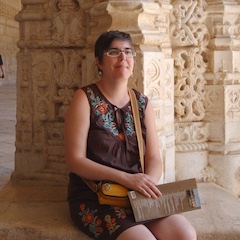
Sandra Romano Martín
Technical DirectorSandra Romana Martín has a doctorate in Classical Philology from the Complutense University of Madrid, and currently works as an assistant professor at the Autonomous University of Madrid. She has also had the opportunity to research in the Universities of Siena, Athens and Oxford. Her thesis dealt with the scene of the assembly of the gods in Greek and Latin literatures, and since then she has continued to investigate other conventional scenes and formal resources in Antiquity and in the classical tradition. Her current work focuses on an analysis of the form and function of allegorical personifications as literary characters in the epic of the Flavian period, as well as their intertextuality.
She has been a member of various research projects on the survival and presence of Latin poetry in Spanish literature, and is currently also part of the Research Group 'Itinera' at the Autonomous University of Madrid.
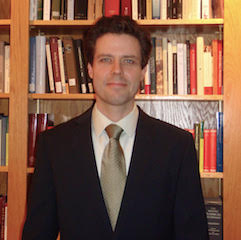
Neil Coffee
Consultative AdvisorNeil Coffee is a professor at the University at Buffalo, SUNY. His role in this project is strictly one of an advisory and consultative nature. Apart from his excellent research record in the area of Roman literature, he is one of the world's most highly trained and respected classical philologists in the field of Digital Humanities.
In 2012 he founded the accredited Digital Classics Association, which he currently co-directs. Since 2013 he has been a member of the consultative team of the Electronic Text Re-use Acquisition Project (eTRAP) at the University of Göttingen, and since 2015 is an affiliate member of the Techne Institute for Arts and Emerging Technologies, University at Buffalo. He is the Director of Tesserae, an impeccable web-base tool for detecting allusions in Latin poetry. He presented this project in Santiago de Compostela at the meeting of the researchers Statius International Conference organized by W. Dominik (University of Otago) and C. Criado in June 2013.
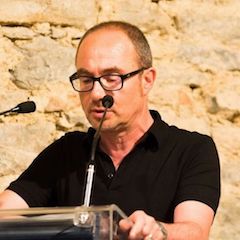
Jesús Bartolomé Gómez
ResearcherJesús Bartolomé Gómez is a professor at the University of the Basque Country, with a PhD in Classical Philology from the University of Salamanca. He began his research career in the field of historiography, especially the work of Titus Livius, and of the Roman epic, his work on Lucan and on the mythical representation of the subject of civil war being of special relevance here. He has recently undertaken research on Silius Italicus’ Punica, which he is currently translating (Cátedra publishing house).
He has a solid theoretical background, and his narratological, intertextual and receptional analyses constitute a notable contribution to the methodological renewal of literary studies of ancient literature.
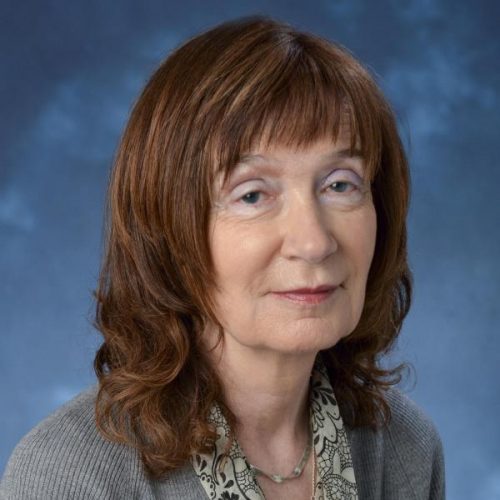
Carole Newlands
ResearcherCarole Newlands is a professor at the University of Boulder (Colorado). Previously she taught at Cornell University, UCLA and at the University of Wisconsin. She is a frequent guest lecturer at various prestigious universities. A graduate in Latin and English from the University of Saint Andrews (GB), and in Comparative Literature from the University of Irvine (USA), she completed her doctoral thesis (Transformation of the Locus Amoenus in Roman Poetry) at the University of Berkeley.
Her research career reveals a constant interest in the imperial literature of the Flavian era, although without leaving aside her other area of specialization, comparative literature. Her numerous studies on Statius are internationally recognized: Statius’ Silvae and the Poetics of Empire, Statius, Poet between Rome and Naples, Statius’ ‘Silvae’ Book 2 and the editorship of the collective volume The Brill Companion to Statius (co-editors W. Dominik and K. Gervais). She had written various monographs on Ovid (Ovid: A Reader, Illinois, 2014 and Ovid, London, 2015) and has edited, with J.F. Miller, The Blackwell Handbook to the Reception of Ovid, Oxford, 2014.
She has been a member of the executive committee of CAMWS (Classical Association of the Middle West and South), of the Center for Humanities Board (University of Wisconsin), director and member of the executive committee of the American Philological Society, and executive member of the School of Historical Studies at the Institute for Advanced Study (Princeton).
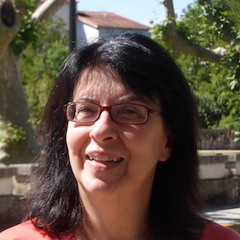
Amelia Pereiro Pardo
ResearcherAmelia Pereiro Pardo is a professor at the University of Santiago de Compostela, where she gained her doctor's degree (Léxico de Arato). Her lines of research are Greek lexicography and Hellenistic and imperial poetry, as well as Greek metrics and the classical tradition in Galicia country. She has taken part in numerous research projects, and is currently working in the Research Group in Classical Philology at the University of Santiago de Compostela.

Gianpiero Rosati
ResearcherGianpiero Rosati is a professor at the Scuola Normale Superiore in Pisa. Previously, he has taught at the universities of Pavia, Scuola Normale and Udine. His areas of research are the Augustean poetry (especially Ovid and elegy), the fiction in Latin prose (Petronius and Apuleius), and the literature of the first century of the Empire. In recent years he has worked especially on the poetry of the Flavian period (Statius and Martial), combining an interest for literary forms and their relationship with visual culture in art and material culture. His translation work also stands out (Ovid’s Heroides, Statius’ Achilleis and books 33 y 37 of Pliny’s Naturalis Historia).
He is a member of the scientific committees of notable journals (Materiali e Discussioni per l’Analisi dei Testi Classici, Maia and Dictyna. He took part in the creation of the Réseau international de recherche sur la poésie augustéenne, which includes some of the principal European universities (Cambridge, Trinity College Dublin, Florencia, Ginebra, Heidelberg, Ruprecht-Karls-Universität, Université Charles de Gaulle Lille 3, Kings College London, Oxford, Roma-La Sapienza, Udine). He is a member of the Academia Europaea.
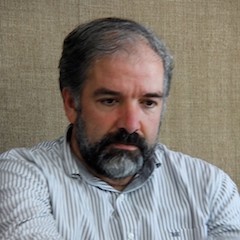
Ángel Ruiz Pérez
ResearcherÁngel Ruiz Pérez trained at the University of Valladolid and is now a professor at the University of Santiago de Compostela. The first steps of his research addressed divination in Greek heroic mythology; specifically, he studied the literary conformation of the myths that are born in the lineage of Tantalus and Pelops and of the Theban Cadmus. He collaborated with the working group of the Centre d'Histoire des Religions of the University of Liège (Belgium), which launched the magazine Kernos. With this group he has participated in several projects of research, compilation and bibliographic criticism, which resulted in various publications. More recently, this main line of research on religion and divination has been enriched by the study of the relationship between myth and the origins of history, both as a science and as a literary genre. The result of this was a study on the origins of historiography and myth, and collaboration in the international project of the new edition of The New Jacoby, directed by Prof. I. Worthington. Kernos. Con ellos ha participado en varios proyectos de investigación, recopilación y crítica bibliográfica, que dieron como resultado diversas publicaciones. Más recientemente, esta línea de investigación principal sobre religión y mántica se ha ido enriqueciendo con el estudio de la relación del mito con los orígenes de la historia, en cuanto ciencia y en cuanto género literario. Fruto de ello fueron un trabajo sobre los origenes de la historiografía y el mito, y la colaboración en el proyecto internacional de la nueva edición de The New Jacoby, dirigida por el prof. I. Worthington.
Another central line of work is his research on the classical tradition in contemporary literatures; first in 19th century Spanish literature, especially Clarín and Galdós, and then in the literature of the Golden Age, specifically Fray Luis de León. This allowed him to establish fruitful relationships that led to his participation in several research projects. He has made research stays at the universities of Munich and Düsseldorf.
Working Team
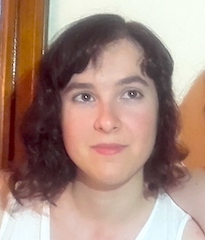
Laura Álvarez García
Working TeamLaura Álvarez García graduated in Classical Philology at the University of Santiago de Compostela in 2013, for which she was awarded the End of Degree Extraordinary Prize. During her degree she presented, under the supervision of Professor Dr. Amelia Pereiro Pardo, an academically directed paper entitled Análise Métrica de Alcestis de Eurípides. In the last year of her degree she was awarded a collaboration grant in the Department of Latin and Greek given by the Ministry of Education and Culture.
In 2014-2015 he studied for an MA in Old and Middle Irish at the National University of Ireland (Galway). Her final degree project, supervised by Professor Dr. Máirín Ní Dhonnchadha, consisted of a proposal for the first critical edition of the medieval Irish poem Flann for Éirinn. In the academic year 2015-2016, she completed the Master's Degree in Teacher Training at the University of Santiago de Compostela. For her final degree project, tutored by Professor Dr. Teresa Amado Rodríguez, she wrote a study of new methodologies for the teaching of Ancient Greek in secondary education.
She is currently working on her doctoral thesis in the programme "Textos de la Antigüedad Clásica y su Pervivencia" at the University of Santiago de Compostela under the direction of Professor Dr. José Virgilio García Trabazo.
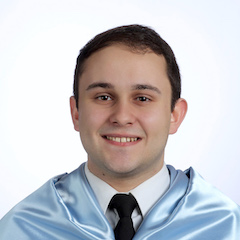
Miguel Giadás Quintela
Working TeamMiguel Giadás Quintela graduated in Classical Philology at Santiago de Compostela University and is currently working on his doctoral thesis. As the first in his class, he was awarded the End of Degree Extraordinary Prize by the USC and the qualification of Mátricula de Honor for the End of Degree study, a partial edition of Gonzalo de Hinojosa's Cronice ab origine mundi carried out for the first time, specifically the part relating to the Trojan War in which Dares Frigio is copied as a source.
He has been part of the project "Dicionario de onomástica galega de orixe grega" at the USC, directed by Dr. María Teresa Amado Rodríguez.
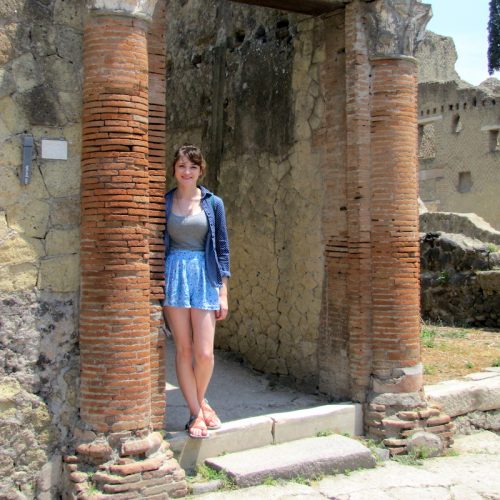
Ashley Kirsten
Working TeamAshley Kirsten is graduate teaching assistant and Ph.D. student in Classical Philology at the University of Illinois at Urbana-Champaign. An Illinois Distinguished Fellow, she is interested in imperial Latin literature, especially drama and the novel. Her research focuses on questions of identity, animality, gender, and sexuality.
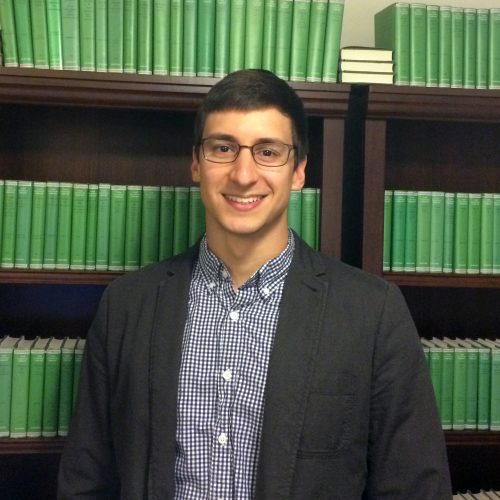
Adam Kozak
Working TeamAdam Kozak earned his B.A. in Classics from Case Western Reserve University in 2013 and his M.A. in Classical Philology from the University of Illinois, Urbana-Champaign in 2015. He is currently a Ph.D. candidate and graduate teacher assistant in the Department of the Classics at the University of Illinois, Urbana-Champaign, USA. His research interests include Latin epic, natural history and philosophy, and ecocriticism. He is writing his dissertation on human encounters with nature in Flavian epic and how they reflect on contemporary Flavian politics.
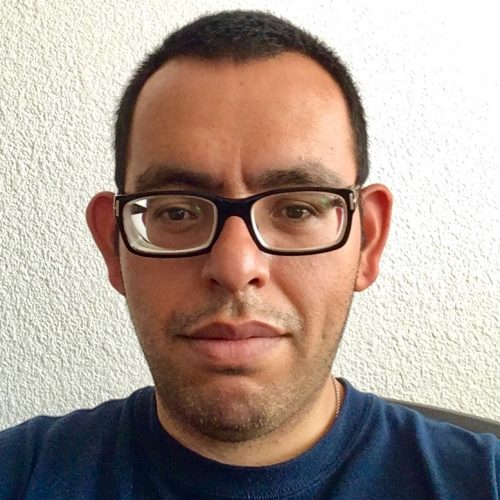
Baruch Martínez Zepeda
Working TeamBaruch Martínez Zepeda holds a Ph.D. from the University of Rome “Tor Vergata,” (supervisors Professor Sergio Casali and Professor Fabio Stok). His Ph.D. dissertation focuses on Statius’ Thebaid book 5 with the aim of composing a philological and literary commentary on lines 1-142. His work pays particular attention to the mythological episode known as Lemnia kaka—the massacre of Lemnos’ men by their wives and daughters. His research also explores the traditions and the rewritings of this important episode within the context of ancient mythology.
He has edited the Spanish translations of several Latin treatises, including Johannes Trithemius’ De laude scriptorum manualium (UNAM, 2015), Giovanni Pico della Mirandola’s Oratio de hominis dignitate (UNAM, 2016), and Richard de Bury’s Philobiblon (UNAM, 2018); he has also reviewed for BMCR, specifically Kyle Gervais' Statius, Thebaid 2. Edited with an Introduction, Translation, and Commentary (Oxford, 2017). He is currently working in the area of textual criticism.
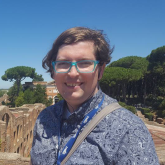
Ky Merkley
Working TeamKyle Merkley is a PhD student at the University of Illinois at Urbana-Champaign specializing in gender and sexuality, and conceptions of personal identity in Neronian and Flavian literature. His current work examines how gendered identities were performed, policed, and transgressed in Imperial Rome.
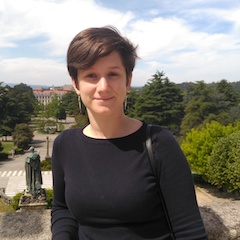
Nerea Ruanova
Working TeamNerea Ruanova graduated in Classical Philology. She completed a Master’s degree in Obligatory Secondary Education and the Baccalaureate at the USC, and a Master’s degree in Archaeology and Antiquity Sciences, also at the USC.
She currently belongs to the Group of Studies of Archeology, Antiquity and Territory (GEAAT) at the University of Vigo and she is doing her doctoral theses about the commerce of fine ware in the Iberian Northwest in the early empire based on the study of potter's stamps on samian ware.

Miriam Sánchez López
Working TeamMiriam Sánchez López graduated in Classical Philology at the University of Santiago de Compostela, obtaining the End of Degree Extraordinary Prize. Her End of Degree study, directed by Dr. José Carracedo Fraga, focused on the analysis of subjunctive verbal forms in Plautus’ Captiui and Rudens, and the final degree project, directed by Dr. Cecilia Criado Boado, was a proposal for a first-year Baccalaureate Greek class using electronic tools that facilitate the development of teaching sessions and enhance the motivation and learning of students. She is currently writing her doctoral thesis on the representation of the furor in Seneca's tragedies.
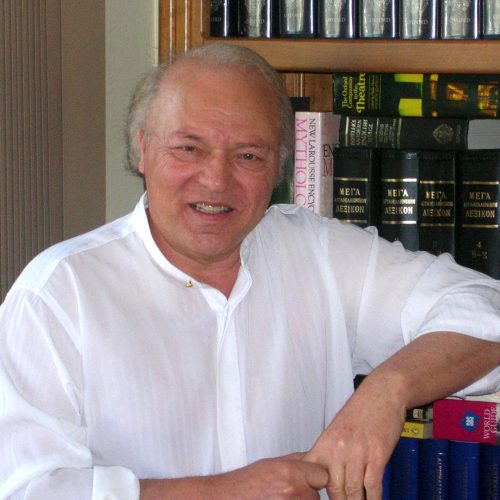
George Theodoridis
Grupo de TrabajoWe are all mentees of someone. George's mentors are the pre-Christian thinkers of Greece and Rome. The philosophers, the poets, the playwrights, the mythographers, Hesiod and Homer, the historiographers; all the men and women who have contributed to the nourishment of the human mind and the nurturing of the human heart, to the understanding, in other words of the difference between good and evil.
He has translated all of the extant plays of the 5th Century BC, Athenians, as well as many of the Lyric poets, including Sappho and a few morsels from Plato's lush table, all of which he has placed up on the web for everyone to download, to study or to read at their leisure.
He loves Literature and when one is so disposed one cannot help but to also love politics. The two are inextricably one. George, however says he's neither Left, Right, nor Centre since these terms are now all but meaningless. What is meaningful is the thought and the deed, both of which should be indubitably just.
He is a retired Secondary teacher and now lectures at the voluntary University of the Third Age on classics.
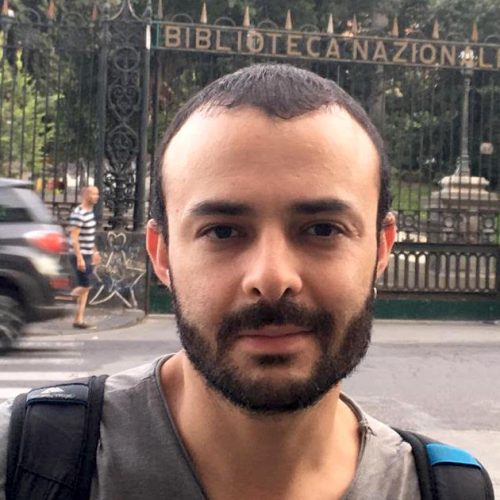
Bernardo Berruecos Frank
Grupo de TrabajoBernardo Berruecos Frank is a researcher at the Centre of Classical Studies of the Institute of Philological Research at the National Autonomous University of Mexico (UNAM), and a professor of Greek and Greek Literature and Philosophy in the same University. He completed his BA in Classical Philology at UNAM, his MA in Classical Studies and Ancient Philosophy at the University of Barcelona (Spain), and his PhD in Classical Philology at the University of Barcelona and in Ancient Philosophy at the Aix Marseille Université of France, under an international joint supervision agreement. He is the author of Poesía arcaica griega. Tomo I. Poesía parenética (Mexico: UNAM, 2018), two co-edited volumes: Alberto Bernabé et al., Parménide: tra linguística, letteratura e filosofía (Academia Verlag-Nomos Verlagsgesellschaft, 2019), and Estudios sobre historia de la poesía griega y latina (UNAM 2019), as well as some articles and book chapters on Greek literature and ancient philosophy. He specializes in the textual transmission of Greek lyric poetry and Pre-Socratic philosophy, particularly, in Parmenides’ Poem. He is a member of the National System of Researchers in Mexico (SNI).

Juan José Marcos
Working TeamJuan José Marcos is graduated in Classical Philology at the University of Salamanca (1986) and he is currently teaching Latin and Greek in a High School located in Plasencia (Cáceres, Spain).
His main research fields are Latin & Greek palaeography and Flavian epics. He is internationally known for being the developer of the multilingual font ALPHABETUM Unicode, a digital typeface intended to reproduce graphically classical languages and ancient scripts. He has written four books: Historia del alfabeto (2012), Historia de la tipografía del griego clásico (2014), Manual ilustrado de Paleografía griega (2017), and a translation of Valerius Flaccus’ Argonautica (2019). He has also edited Juan de Arjona’s poetic version of Statius’ Thebaid (2019). Historia del alfabeto (2012), Historia de la tipografía del griego clásico (2014), Manual ilustrado de Paleografía griega (2017), una traducción de las Argonáuticas de Valerio Flaco (2019) y una edición revisada de la versión poética de Juan de Arjona de la Thebais de Estacio (2019).